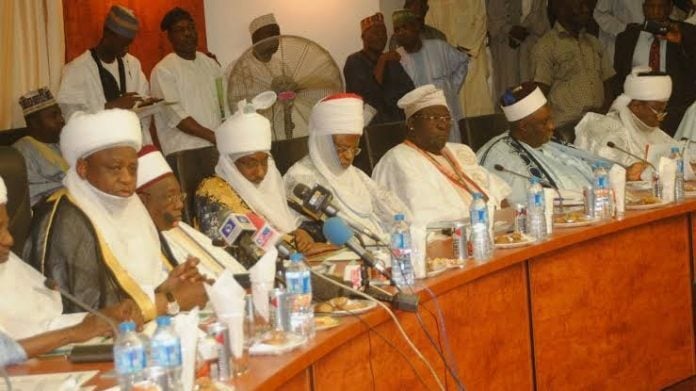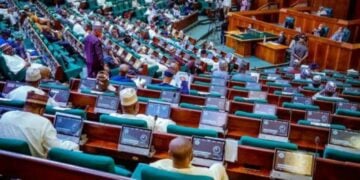Northern Elders Forum (NEF) has announced the maiden edition of the Northern Nigeria Investment and Industrialisation Summit, slated for September 29–30, 2025.
The summit is designed to reposition Northern Nigeria as a hub of economic transformation, innovation and sustainable development.
At an international press conference held at the Hawthorn Suites Hotel in Abuja, the spokesperson for the NEF, Professor Abubakar Jidere, described the summit as a “deliberate patriotic agenda” aimed at revitalising the region’s economy and unlocking its vast, untapped potential.
“This summit is not just another conference,” Jidere declared. “It is an economic call to action—an unveiling of a fresh vision for Northern Nigeria. It is a strategy to transform paradox into prosperity.”
Responding to questions about the timing and the NEF’s role, Jidere said the current moment presents an unprecedented opportunity for Northern Nigeria to reset its economic trajectory.
“The summit is not political,” he said. “It is about economic opportunities, partnerships, and prosperity. The Northern Elders Forum has chosen this moment to help shape a future worthy of our people.”
Recalling the region’s past economic prominence—from the days of groundnut pyramids to booming trade in cotton, hides, and solid minerals—Jidere acknowledged that while Northern Nigeria once powered the nation’s economy, issues like insecurity and underinvestment had slowed its momentum.
“Today,” he noted, “we begin a new chapter. We are not just looking back in nostalgia. We are looking forward with purpose.”
The summit, developed over 18 months in collaboration with the 19 Northern States and the New Nigeria Development Company (NNDC), will focus on five key pillars: Land and Agriculture – Harnessing vast arable land to feed the continent; Solid Minerals – Tapping into over 500 identified locations rich in resources; Human Resources – Leveraging a large, youthful population; Infrastructure – Integrating roads, railways, energy, and dams for growth; and Industry – Scaling enterprises to become regional and global hubs.
These pillars will be supported by three critical enablers: education, healthcare and technology, laying the groundwork for sustainable and inclusive development.
Contrary to perceptions of being landlocked, Northern Nigeria is “land-linked,” the NEF emphasised – bordering Niger, Chad, Cameroon, Benin, Mali, and the Central African Republic. With a population of 160 million, the region is poised to become a strategic economic gateway for West and Central Africa.
“This population is not a burden – it is an opportunity,” Jidere said.
While rooted in Northern Nigeria, the summit’s message is one of national and continental significance.
“This summit is for Nigeria. It is for Africa. It is for all global partners who believe in shared prosperity,” Jidere declared. “When Northern Nigeria rises, Nigeria rises. And when Nigeria rises, Africa rises,” he added.





